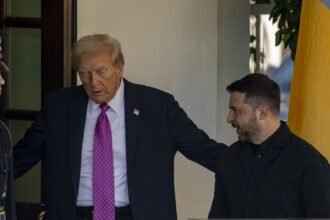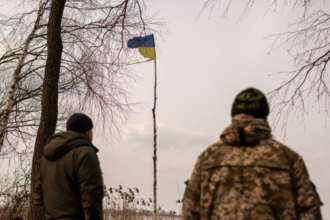Kyiv’s cross-border incursion into Russia’s Kursk area begged a vital question in military circles: “Why?” Given Ukraine’s major tactical problems, including limited personnel and Russia’s advancing forces near the eastern Ukrainian town of Pokrovsk, this audacious action involving hundreds of Ukrainian troops first looked contradictory. Still, this might be a considerably more planned operation than it first seems.
A Counterintuitive Move
Ukraine’s workforce deficit is among its most urgent problems. Ukrainian forces have maintained their position against the oncoming Russian troops despite their numerical disadvantage. Sending hundreds of Ukrainian soldiers into Russian territory might look like a strategic mistake, though. Some professionals counter that, though.
War specialist Kostyantyn Mashovets said, “It wasn’t accidental.” One straightforward strategy includes this. According to Mashovets, the raid was a deliberate action inside a larger strategic framework rather than a spur-of-the-moment choice. This point of view suggests that Ukraine’s leadership had a specific objective in mind that transcended the immediate tactical concerns.
Strategic Redeployment
An additional understanding of the strategic justification for the raid comes from military analyst Mykhaylo Zhyrokhov. He noted that Russia had been obliged by the incursion to reallocate part of its forces from the Eastern Ukrainian front. “Look at official reports; the Donetsk area saw much fewer Russian glide bomb drops,” Zhyrokhov said. “That means the aircraft that carry them are now elsewhere in Russia.”
According to this study, the Ukrainian incursion was intended to attract Russian resources and attention away from other vital frontlines. Ukraine sought to relieve pressure on its soldiers by deviating from and upsetting Russia’s operational plans. When every resource and strategic advantage counts in a lengthy fight, such a strategy can be successful.
Historical Context and Strategic Timing
Furthermore, the time of this raid is essential. Russia had already started a massive cross-border attack into the northern Kharkiv area of Ukraine. After the US permitted Ukraine to use missiles on targets within Russia, this development seemed to stall. Fears of a similar attack on the northern Sumy area of Ukraine have developed over the previous three months, therefore raising strategic issues and tensions.
Given the West’s continuous concerns about the possible escalation of the conflict, some degree of cooperation or consent was probably given for this operation. Aimed at combating the Russian threat in the north and changing the dynamics of the conflict, the attack is a reaction to the strategic change produced by Ukraine’s increased missile weapons.
Ukrainian Silence and Russian Response
Following the raid, Ukrainian officials have been under low profile. “No comment yet,” the president’s office said in a short and nonjudgmental statement. Given that this is the first time consistent Ukrainian soldiers have been employed in such a frontal attack on Russian territory, this hesitation is noteworthy. The absence of thorough analysis from Ukrainian officials could be a calculated decision meant to let the effects of the operation play out free from further public inspection.
From Russia, the answer has been quick and forceful. Quickly reporting the raid, Russian military networks highlighted the participation of hundreds of troops and multiple rocket and drone strikes. Local Kursk officials started evacuations and quickly declared casualties. Declared a state of emergency in the impacted areas, neighboring localities have shown readiness to welcome people uprooted by the war. Further highlighting the scope of the reaction, the Russian Defence Ministry verified the soldier relocation towards Sudzha, a town in the Kursk area.
Kremlin's Response and Implications
Vladimir Putin was immediately informed by his security officials at the top levels. Reflecting the Kremlin’s impression of being surprised by the operation, the Kremlin’s Foreign Ministry called the act “barbaric” and “terrorist.” This reply emphasizes how complicated and erratic the current situation is. Russia has been relentlessly acquiring land and overwhelming Ukrainian soldiers until recently. The fresh development forces Russia to rethink its policies, adding even more complexity to the fight.
The Kremlin’s presentation of the attack as a reason for continuing its “defensive” war highlights the complex dynamics under action. Pointing to the ambiguity over the raid’s long-term consequences, Mykhaylo Zhyrokhov contends that the events in the Kursk area have generated more questions than answers.
The attack will be deemed a strategic success for Ukraine if it helps to stop or postpone Russian advances into the north. “The more pressure is exerted on the aggressor that brought the war to Ukraine, the closer peace will be,” President Zelensky said in his evening address. He underlined just peace via just power. This comment captures the fundamental justification for the raid: applying pressure on Russia to get a positive result for Ukraine and move toward a conflict resolution.








